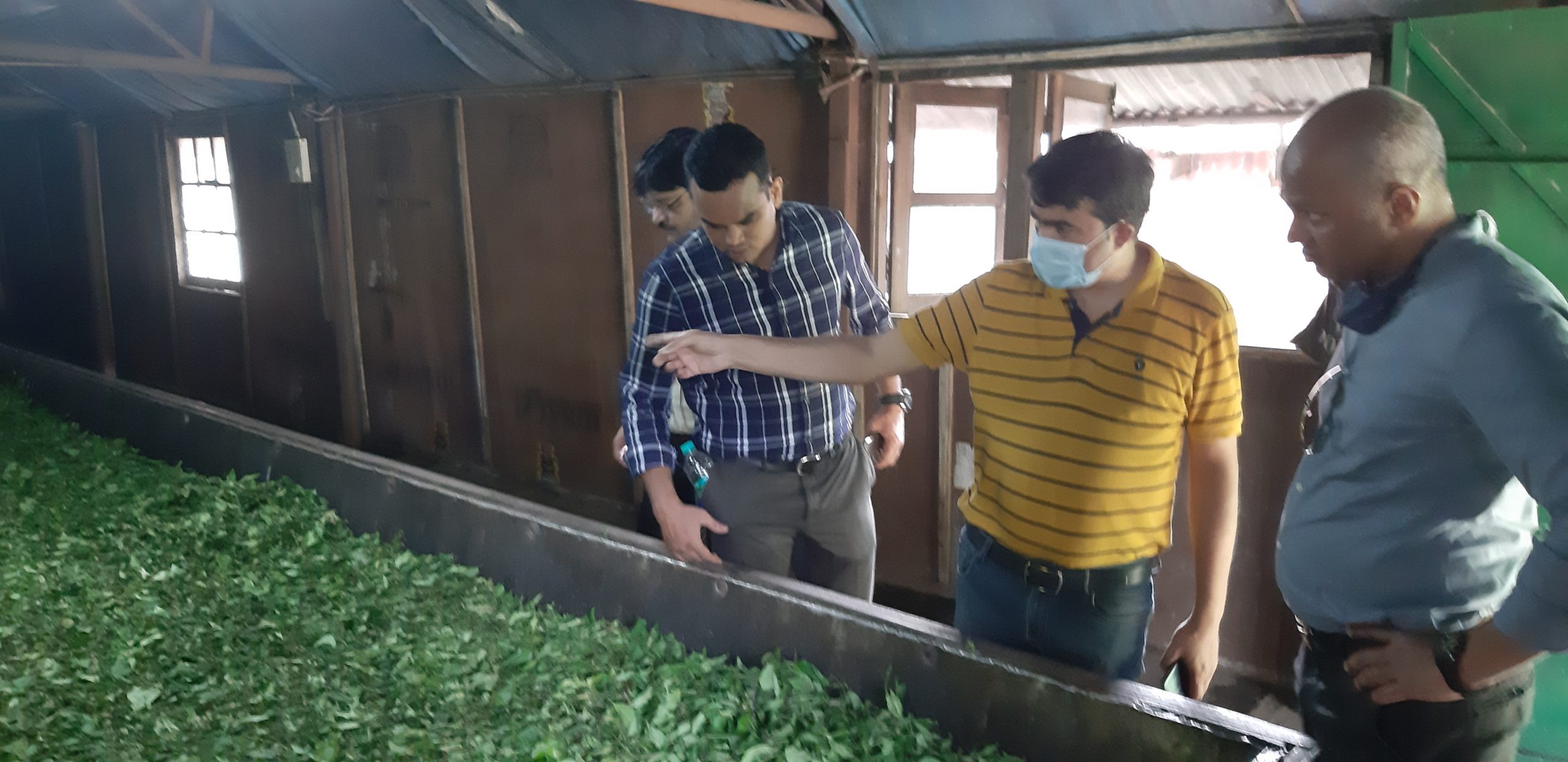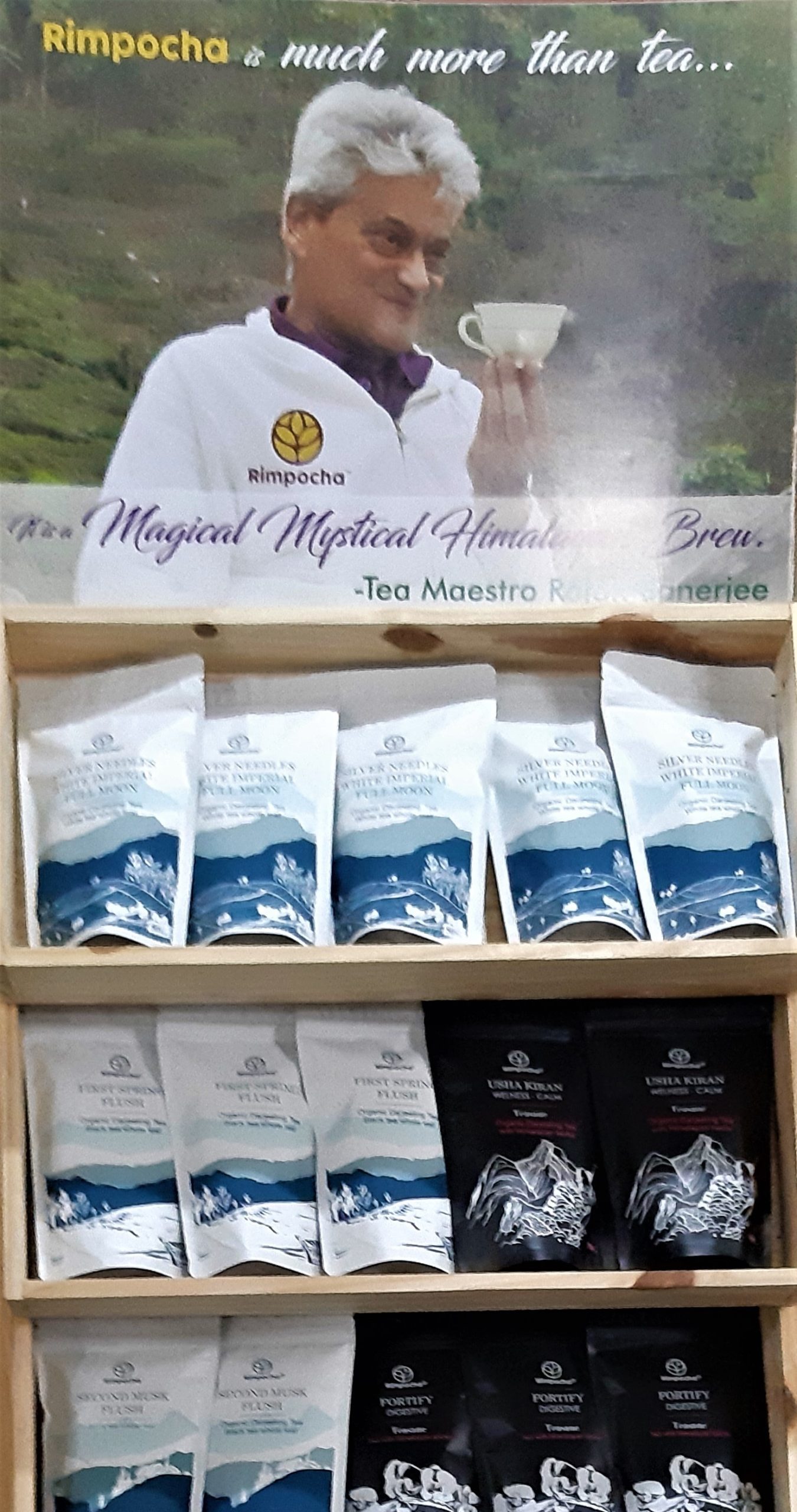A Social Impact Endeavour: ICDI visits Selim Tea Estate in Siliguri, West Bengal, India.
ICDI MEETS WITH MR. RAJAH BANERJEE, FOUNDER, RINPOCHA TEA & CHAIRMAN, SELIM HILL COLLECTIVE
Members of the delegation: Debasish Bhattacharjee – ICDImpact (Asia|SAARC) & Director, ECF, Prafulla Kumar Satapathy – Social Marketing expert, Ajiteesh Banerjee – Chartered Accountant | Finance Expert, Arbind Sahoo – Director, Ruchi Foodline Pvt. Ltd., Ashok Nayak – Head of Quality, Ruchi Foodline Pvt. Ltd. Hosted by Rajah Banerjee – Founder, Rinpocha Tea & Chairman, Selim Hill Collective and Ram Sharma – Technical Head, Rinpocha Tea.
A field visit-cum-exposure trip was organized by ICDImpact with the collaboration of Earthworks Conservation Foundation (ECF) in Siliguri, West Bengal, India. The delegation consisting of developmental professionals, social marketing experts and promoters of organic spices and Agra products set out from Kolkata to get a first-hand knowledge about how the tea planters (Tea Estate owners) are adopting sustainable practices to fortify the fragile Himalayan ecosystem and provide a better living environment for the farmers and their families involved in the growing and processing of tea.
The delegation was hosted by Mr. Rajah Banerje, who is the erstwhile owner of Makaibari Tea Estate, and currently the founder of Rinpocha Tea & Chairman, Selim Hill Collective. The delegation was escorted during the field trip by Mr. Ram Sharma – Technical Head, Rinpocha Tea.
Background
Tea production, which was introduced by the British when they colonized India, has always been a labour intensive business, using 95% local women and their families for various activities involved in the tea estate and processing factory. Most of the families of marginalized farmers were completely dependent on the owners of the tea estates for their livelihood and sustenance. Most of them were offered shelters in the estate or neighbouring villages so that they could be summoned to work easily. Among the tea estates of the region, Makaibari stood out as the jewel in the crown. The Makaibari tea estate has been ably run under the stewardship of Mr. Rajah Banerjee, now 70, who happens to be the 4th generation of owners, with the estate dating back to 150 years. Makaibari built the world’s first modern tea factory in 1859. It was the first garden in India to be certified organic (1988) and to formally adopt Fairtrade Policy (1993). Workers here have cooked over biogas since the 1970s, not health endangering twigs as was the common practice. The garden pioneered biodynamic cultivation to the extent that thousands of tea trees were removed to make room for native plants.
Among the tea estates of the region, Makaibari stood out as the jewel in the crown. The Makaibari tea estate has been ably run under the stewardship of Mr. Rajah Banerjee, now 70, who happens to be the 4th generation of owners, with the estate dating back to 150 years. Makaibari built the world’s first modern tea factory in 1859. It was the first garden in India to be certified organic (1988) and to formally adopt Fairtrade Policy (1993). Workers here have cooked over biogas since the 1970s, not health endangering twigs as was the common practice. The garden pioneered biodynamic cultivation to the extent that thousands of tea trees were removed to make room for native plants.
The delegation was hosted by Mr. Banerjee at his residence in Siliguri and he explained how he has begun a participatory outreach program to enhance the skills of small growers in Darjeeling, Sikkim, Dooars, Terai, and Nagaland. His ultimate goal is to reintroduce green farming to the country and bring self-sufficiency to the small farmers who make up the core of his present organization, Rimpocha. The foundational lesson is to return the soil to its full health. For him, a healthy soil is healthy mankind, an ultimate takeaway from his 47 years at Makaibari. Treating soil as an organism that thrives on proper nutrition is the secret to a good crop, he explained. Therefore, healthy soil is the invaluable treasure for all times to come.
The cow, which is a common farm animal, provides immeasurable multifaceted assets for a marginalized farmer. Animal husbandry plays an important role in tea quality. So does wildlife protection, as Darjeeling hosts 400 bird species and unique insects seen nowhere else on earth.
Seventy percent of the women in tea are marginalized. The better the farming practices, the better the yield, and the higher the price of
tea it fetches. This allows the women working with Rimpocha to become financially independent, ensuring a cash surplus after daily expenses. This, in turn, enables investment in education and self-awareness and character that enables the next generation to break free of exploitation and become “successful, self-respecting grass roots entrepreneurs (GREs).
Mr. Banerjee is also collaborating with Italian naturopaths to conduct workshops for villagers who are encouraged to recreate their indigenous medicines for common ailments, thus moving away from the costly modern medicines, that are not only costly but bring along harmful side effects in the long run. Working for clean and carbon-free energy, is another important goal that Mr. Banerjee propagates and practices in the tea gardens mentored by him. Rimpocha recognizes the wisdom of working with different farming communities to achieve the 17 sustainable goals identified by the United Nations.
Presently Mr. Banerjee and his team are working with the farming communities of Bunkulung, Nimbasti & Rangbang, consisting of 100 families with over 500 individuals. They are being exposed to:
- Herbal way of life for back to nature living (Encompassing health & hygiene)
- Zero chemical fertilizer farming to maintain the organic nature of the produce
- Food security through permaculture instead of monoculture. Permaculture is an innovative ethics and design based process used to make agriculture more sustainable, restore soil, conserve water, and redirect waste streams. The process is inspired by the everyday relationships found in nature.
- Skill development for production of handicrafts or soft skills for running home stays for tourists to augment their income.
The knowledge and skills are disseminated through periodic workshops and training programs conducted by Mr. Banerjee and his team.
The delegation was deeply inspired by the work of Mr. Rajah Banerjee and his team, and they decided to take the visit to the next level of engagement by discussing internally to understand how a model for collaboration could be rolled out for enhancing and amplifying the great initiative further.
The ICD Impact News Desk
Copyright © 2021 ICD Impact all rights reserved
ICD Impact is a registered brand of V- Impact House, Vienna/Austria
Registration Number: FN 12771/5142





